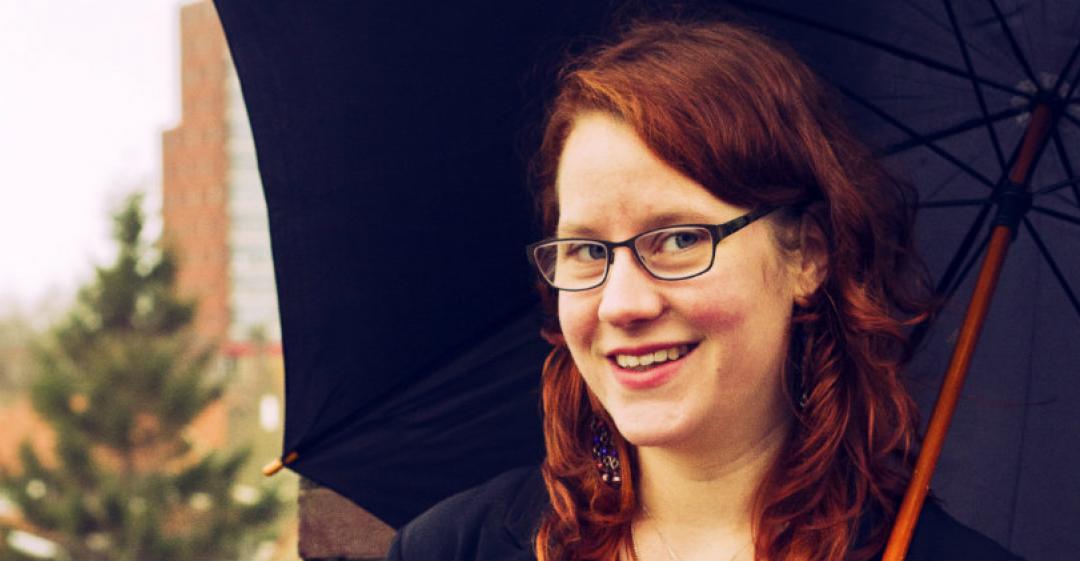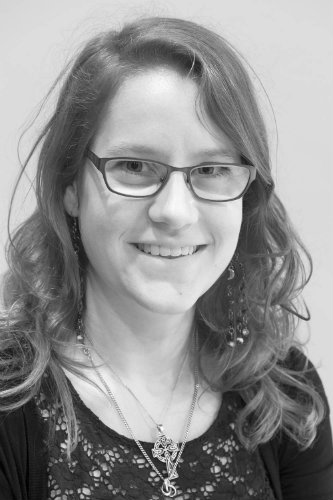“I thought 'If this is how the rest of my life is going to be, I'll end up burned out and depressed...'”

What work were you doing previously?
I was an editor of a UK magazine.
What are you doing now?
Right now I'm a freelance journalist, blogger, and copywriter.
I'm working with several magazines and blogs, both in Dutch and English. I'm also working with other small businesses, helping them with copywriting and editing. I have a passion for storytelling and I specialise in helping other people and businesses share their story with the world.
Why did you change?
Although I loved being an editor, I felt trapped in the walls of the office and I missed my creative freedom.
I was also working in the UK while my family and friends lived back in the Netherlands. I went back and forth as much as I could, but in the end decided that I just wanted to go home.
Jobs here are hard to come by, so I decided to be a freelance journalist. Due to the needs of the clients crossing my path, I ended up being a copywriter as well. I love working one on one with clients to help their business shine and thrive.
When was the moment you decided to make the change?
Last spring, after another night of crying on the sofa, I decided I just wanted to go home.
I'd had a particularly rough week at work and I thought "If this is how the rest of my life is going to be, I'll end up burned out and depressed before I'm 35".
I quit the next day.
Are you happy with the change?
Yes, I am (now).
It took a long time to adjust to being back in the Netherlands. The business took ages to get off the ground and I had to move back to my family home for the first year. I had a lot of doubts about whether or not I made the right decision. I had to fight and work my butt off to get where I am today. But now the ball is rolling I have no trouble getting out of bed in the morning. I love the versatility of my job.
What do you miss and what don't you miss?
I miss my co-workers, people to have a laugh with.
However, I don't miss the set hours. I love getting up and going for a walk when I feel stuck. I love getting up 15 minutes before starting working, sometimes starting at 8 a.m. and finishing at 4 p.m. and sometimes working till 8 or even 9 p.m.
How did you go about making the shift?
Although I had been thinking about it for a while, I had no systems in place when I decided to make the change.
It took me a whole 24 hours to decide to do it. I wrote and printed off my letter of resignation, still not sure whether or not I was going to hand it in. It wasn't until I was at work and pulled my boss into the meeting room that I knew I was actually going to do it.
When I quit I had a portfolio website that was up to date, but that was it. I didn't start sending out pitches until I was fully moved and unpacked back in the Netherlands. And even then I had no idea what I was doing. I randomly sent out pitches to magazines that sounded kind of fun, hoping I would get lucky. That didn't happen.
I ended up in a government programme to set up my business and had to write an entire business plan. Alongside this I started reading blogs and following courses on pitching magazines. That helped me to land my first few clients, but still it didn't get me where I wanted to go.
I signed up for a digital strategy course, led by the lovely Kyla Roma, and I started networking. That helped me to form connections with other online entrepreneurs, bloggers and businesses. It also helped me to get in touch with new clients and start to grow my business.
What didn't go well? What 'wrong turns' did you take?
Getting clients and writing gigs was extremely hard.
I had no idea how hard when I first started out. I was sending out emails, with no idea how to pitch. Even though I had been an editor, it wasn't the kind of magazine that got pitched a lot.
I also had a very narrow focus, because of the government programme I was in. They really wanted me to stick to one thing: I picked magazine journalism. And although I love that and will keep on pitching articles, the mix of blogging, journalism and copywriting is definitely a sweet spot for me. I love doing different things and as soon as I discovered that I could do it all and I didn't need to deny myself those things, my job instantly got better.
How did you handle your finances to make your change possible?
I didn’t.
I had no clients and hardly any savings. So I ended up on government benefits, through which I got into the business development programme.
Now I'm more sensible. I make sure I reserve money for taxes, have a monthly admin day and stay on top of my invoices and costs.
What was the most difficult thing about changing?
Getting clients, without a doubt.
It felt like a struggle to get my name out there, to let people know I existed. I'm not a sales person and I'm kind of shy, so having to go to networking events (even online) and trying to sell myself felt unnatural to me. I think that's something you get used to, but still it feels weird to go up to people and pitch to them.
I don’t think that will ever feel completely natural for me, but I am getting better at it.
What help did you get? 
Online courses.
Some of the teachers, mentors and people I've met through the courses are amazing. I've learned so much from them: learning how to pitch, find your way online and put yourself in the digital market. Some of those people I speak to almost every day and it's such a great support system. I don't think I could have done it without like-minded people who are trying to set up their business too.
What have you learnt in the process?
Not to give up.
Not ever.
Yes, it has felt very hard. Yes, I've felt like giving up. There've been times when I've sat on the sofa and just cried because I didn't feel like I was getting anywhere.
Looking back, I can see that I've always kept going, even if just baby steps, but I've never given up. I got up, I showed up and I kept fighting for it.
What would you advise others to do in the same situation?
Start with a plan before you dive in and quit your day job.
If I could go back and change one thing, that would be it. That, and saving some backup money first. Some of my worst moments were created by the "I'm running out of money" feeling, and I don't recommend it.
What resources would you recommend to others?
Get a mentor, follow an online coach, and join Facebook networking groups and connect with people through Twitter.
Just get out into the (online) world. I know it's scary – I've been there, but the connections really made my business flourish and, frankly, so much more fun!
To find out more about Stephanie's services, visit www.stephaniedegeus.nl
What lessons could you take from Stephanie's story to use in your own career change? Let us know in the comments below.



